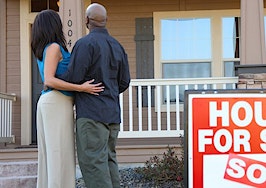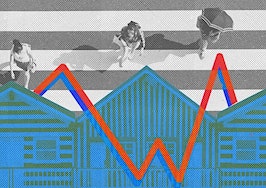The Federal Reserve on Wednesday increased its short-term interest rate from 2 percent to 2.25 percent, the third rate hike this year. In a press conference, Federal Reserve Chairman Jerome Powell said the hike reflects the strength of the economy and is part of the committee’s ongoing plan to gradually bring interest rates back up to pre-recession levels.
“This action reflects the strength we see in the economy, and is one more step in the process that we began almost three years ago of gradually returning interest rates to more normal levels. Looking ahead, today’s projections show gradual interest rate increases continuing roughly as foreseen in June.”
Powell said median projections for inflation now stand at 2.0 percent this year, although inflation rates may shift above or below that mark in certain situations such as inflation in gas prices, which happened earlier this year. Furthermore, the chairman noted that the committee anticipates raising rates five more times by the end of 2020.
While a hike in interest rates signals positive economic growth, it could also pose a challenge for borrowers who are already struggling with dwindling affordability thanks to low inventory and steadily rising home prices.
In an emailed statement, Keller Williams senior economist Ruben Gonzalez explained that the uptick in long-term Treasuries have, and will continue to result in higher mortgage rates, which may lead to weakened buyer demand, especially on the lower end of the market.
“Mortgage rates have been trending up, reflecting the recent movement in long-term treasuries,” Gonzalez said. “The same flat trend in long-term treasuries that’s led to concerns around the flattening of the yield curve has also resulted in a fairly flat trend in mortgage rates since April.”
In an interview with NPR, Bankrate.com chief financial analyst Greg McBride echoed Gonzalez’ statements, saying that sluggish wage growth (+2.7 % y-o-y) coupled with continual upticks in interest rates will put enormous strain on American households.
“For a lot of households, their wages have barely kept pace with the increases in household expenses — if even that,” Greg McBride said. “Layer on top of that rising interest rates and the rising headwind that that presents toward consumers that are trying to get their debt paid off, and it’s just going to further strain families that already have tight household budgets.”
In the press conference, Powell acknowledged the impact of these gradual increases but noted that consumers must remember that the cost of borrowing is coming up from historical lows.
“We look at that very carefully, and interest rates are going up across a very broad range of consumer borrowing as they would when we increase short-term interest rates,” he said. “They’re still quite low by historical levels, and the other thing I’ll say is that if you take housing and look at the NAR affordability index, housing is still more affordable now than it was before the financial crisis.”
“So, you’re right that the cost of borrowing is going up, but it’s going up from what were extraordinarily low levels.”
According to an analysis by Lending Tree chief economist Tendayi Kapfidze, homeowners shouldn’t begin worrying just yet — in the last three Fed rate hiking cycles, Kapfidfze said, mortgage rates only rose 1 percent.
“Although the Fed Funds and mortgage rates are often influenced by the same factors, that is not consistently the case and they are rarely impacted to the same extent,” he said. “The U.S. treasury and mortgage markets operate independently of the Fed Funds rate and are also influenced by international developments and investors to a larger extent, further decoupling them from the Fed Funds rate.”






